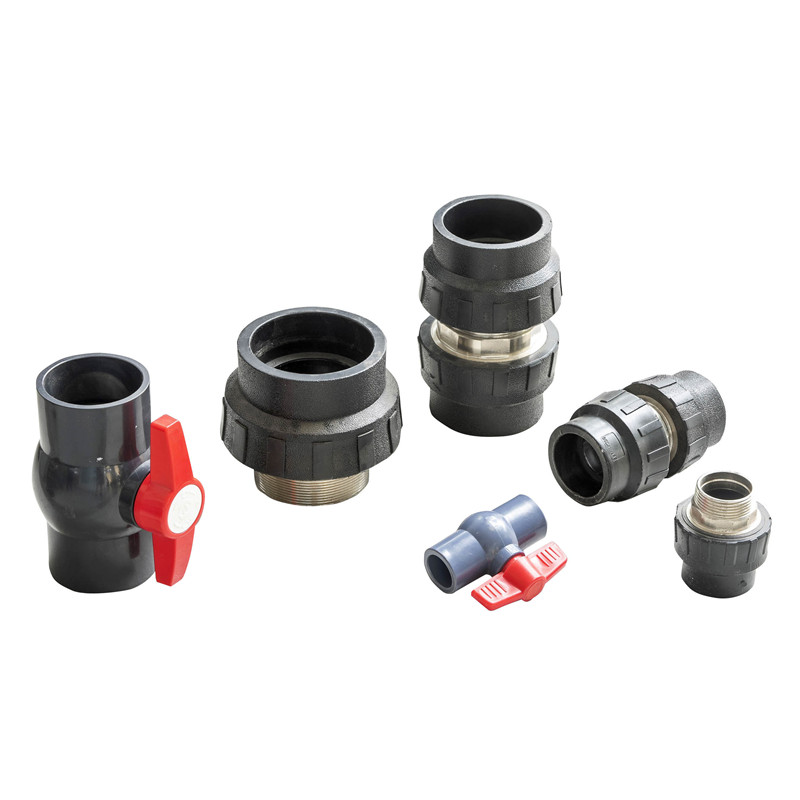Aug . 16, 2024 20:44 Back to list
Understanding the Benefits of HDPE Sprinkler Pipe for Efficient Irrigation Systems
The Advantages of HDPE Sprinkler Pipes in Irrigation Systems
High-Density Polyethylene (HDPE) has become a go-to material for irrigation systems, particularly in the form of sprinkler pipes. These pipes offer numerous advantages that make them a preferred choice for agricultural and landscape irrigation. In this article, we will explore the features and benefits of HDPE sprinkler pipes, and why they are an essential component for efficient irrigation.
Durability and Longevity
One of the most significant benefits of HDPE sprinkler pipes is their exceptional durability. HDPE is resistant to corrosion, chemicals, and ultraviolet (UV) radiation, which means that these pipes can withstand harsh environmental conditions without deteriorating. This durability ensures that HDPE pipes can last for decades, even in challenging climates, reducing the need for frequent replacements. By investing in HDPE sprinkler pipes, farmers and landscapers can save on maintenance costs and time.
Flexibility and Ease of Installation
Another standout feature of HDPE sprinkler pipes is their flexibility. Unlike traditional metal or PVC pipes, HDPE can bend and curve, allowing for easier installation in various terrains and landscapes. This flexibility simplifies the setup process, making it ideal for irregularly shaped fields or gardens. Additionally, HDPE pipes can be joined using heat fusion techniques, creating seamless connections that eliminate potential leak points, further enhancing the integrity of the irrigation system.
Lightweight and Cost-Effective
hdpe sprinkler pipe

HDPE sprinkler pipes are considerably lighter than their metal counterparts. This lightweight nature simplifies transportation and handling during installation, reducing labor costs. Furthermore, due to their resistance to rust and degradation over time, HDPE pipes require less maintenance, resulting in lower long-term operational costs. This cost-effectiveness makes them an attractive option for both large-scale agricultural operations and smaller gardens.
Efficient Water Distribution
One of the primary purposes of an irrigation system is to deliver water efficiently to crops or plants. HDPE sprinkler pipes excel in this regard due to their smooth internal surfaces, which allow for optimal water flow with minimal friction losses. This efficient water distribution ensures that plants receive the necessary moisture for growth while minimizing wastage. Moreover, HDPE pipes can be customized to various diameters, enabling tailored irrigation solutions to meet specific crop requirements.
Environmental Benefits
Environmentally conscious consumers will appreciate the sustainable characteristics of HDPE pipes. HDPE is 100% recyclable, which makes it a more sustainable choice compared to traditional plastic or metal options. By reducing environmental impact, HDPE pipes cater to the increasing demand for green farming and landscaping practices. Moreover, the efficient water usage associated with HDPE sprinkler systems helps conserve water, making these systems not only cost-effective but also ecologically responsible.
Conclusion
In conclusion, HDPE sprinkler pipes represent a modern solution to traditional irrigation challenges. Their durability, flexibility, lightweight nature, efficiency in water distribution, and environmentally friendly attributes make them an excellent investment for anyone involved in agriculture or landscaping. As the demand for efficient water management continues to grow, HDPE sprinkler pipes will undoubtedly play an essential role in promoting sustainable practices and improving crop yields. Adopting such innovative solutions is not just a trend, but a necessary shift towards more resilient and sustainable agricultural systems.
-
High-Quality PPR Pipes and Fittings Durable ERA PPR & PVC PPR Solutions
NewsJul.08,2025
-
Black HDPE Cutting Board - Durable, Non-Porous & Food Safe HDPE Plastic Cutting Board
NewsJul.08,2025
-
High-Quality CPVC Panel Durable HDPE & PVC Panels Supplier
NewsJul.08,2025
-
Double PE Welding Rod Supplier - High Strength, Durable & Versatile Welding Solutions
NewsJul.07,2025
-
High-Quality PVC-O Pipe Supplier Durable 75mm PVC Pipe & Connections Leading PVC Pipe Company
NewsJul.07,2025
-
HDPE Drainage Pipe Supplier – Durable & Corrosion-Resistant Solutions
NewsJul.06,2025

